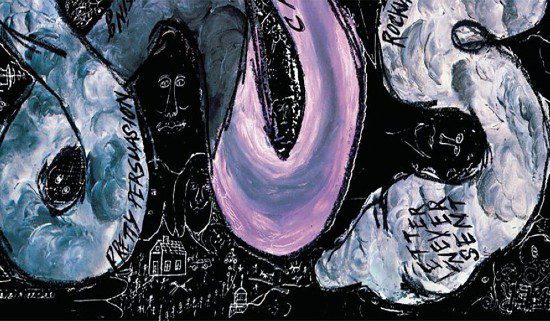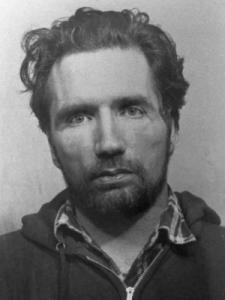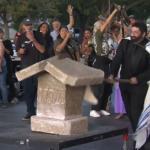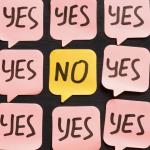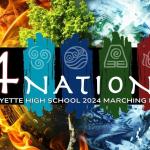A friend of ours is a wine person and he’s been raving about his recent trip to Oregon’s wine country. I didn’t follow all the stuff about “varietals” and what-not, but the one thing I did learn was that all these years I’ve been saying “Willamette” wrong.
I’d been pronouncing that like William-ette, with four syllables, like a diminutive form of William. But it turns out it’s a three-syllable word with the emphasis on the LAM in the middle. “Willamette, dammit,” is the rhyming reminder that locals apparently use to correct outsiders.
Fortunately, I don’t think I’ve ever had the occasion to have attempted to pronounce that word out loud. I’d been saying it wrong all this time, but only in my head, not in a situation where anyone who knew better could actually hear me. That spared me some minor embarrassment, but it also allowed me to continue mispronouncing that word for a long time. I’m just glad I was able to learn the proper way to say it without having to learn it the hard way.
Alas, I haven’t been as fortunate when it comes to other, more substantial misapprehensions that I’ve harbored for many years. There have been plenty of times when some idea I’d been saying in my head — something that sounded right to me, and seemed to make sense when no one else was listening — only got corrected when I finally wound up in a situation where I was saying it out loud in the presence of people who knew better.
And the worst of those had nothing to do with anything as trivial as pronunciation.
Many of these weren’t simply my own individual misconceptions, but were things I had learned and absorbed and had reinforced in a community of misconception. None of us in that community knew any better, so as long as we were only saying these things out loud to one another, there was no one else around to hear us or to correct us.
Communities of misconception can be very small — think of some incorrect assumption that might linger unchallenged and uncorrected in a particular family until one of the kids goes off to school. And they can be very large — even nation-sized. Any American who has traveled abroad will be familiar with the awkward realization that there are lots of things we Americans say in our heads and to one another about the rest of the world that turn out to be wrong. (This realization can be avoided while traveling, however, if you go with a large group of other Americans, carrying the community of misconception with you, and interacting only with locals who have learned the art of pleasing American tourists by never challenging our misconceptions.)
For me, personally, the main community of misconception that shaped me growing up was the white evangelical/fundamentalist subculture of my church and private Christian school. I was thoroughly enmeshed in that little world where, as in all little worlds, the big problem wasn’t the things we didn’t know, but “the things we knew that just ain’t so,” as Mark Twain put it. We had all sorts of misconceptions — about the Bible, about “the world,” about other people, about specific kinds of other people — that made sense to us and sounded right when we said them aloud to one another.
Those misconceptions endured, unperturbed, uncorrected, almost unacknowledged, until life conspired to draw us outside of the bounds of that little world and we saw the look of confusion and consternation on someone’s face as we said those things out loud for the first time in the presence of someone who knew better. We’d never seen that look before when we said such things to one another. Within the community, these things were unremarkable — they sounded right and they made sense to us — and it was jarring and confusing to suddenly find things we’d been saying this way for so long producing a different response. Suddenly someone was laughing, or was offended, and we hadn’t been trying to amuse or to offend. We were just repeating something we’d all “knew,” and something we had assumed that everyone else must know as well.
In that moment, I’m afraid, the instinct tends to be to defend and to explain. You’ve said this same thing before and everyone just nodded, so you keep talking, trying to rephrase what you just said in some new way that will get this person nodding too. You remember this same idea making perfect sense when the youth minister said it last week, so you try to remember exactly what he said and repeat that. Yet the more you talk, the more you seem to amplify the amused confusion or the horrified condemnation showing in this person’s face.
Maybe that’s never happened to you. (That could either be a good thing or a Very Bad thing.) Or maybe it’s only ever happened to you with trivial things like the pronunciation of Willamette. But if you’ve ever had that experience of having a long-held, unacknowledged misconception corrected the hard way, then you’ll recognize the same thing when it happens to others when you see them stepping outside of their communities of misconception and saying something out loud for the first time to others who know better.
The substance of those misconceptions may be indefensible. They may be bigoted and prejudiced, misogynist, racist, homophobic, xenophobic, illiterate, innumerate, or otherwise shameful or harmful in all kinds of ways. That matters, and we shouldn’t ignore or accommodate the harm that such ignorance produces. But such occasions can also be a moment of grace, a teaching moment, and a chance to help someone grow beyond the little world of their community of misconception.
When you encounter someone in that situation — like “Jackie at the Crossroads” — try to be patient and kind and graciously gentle with them. You may be the most important person they meet that day, so don’t take that opportunity lightly.








